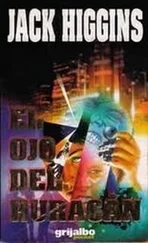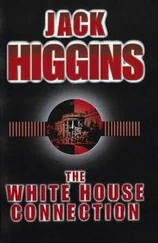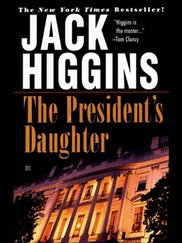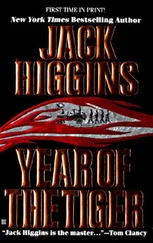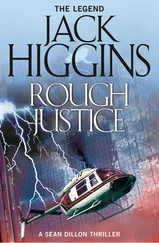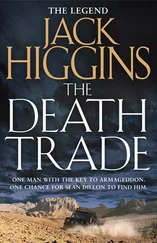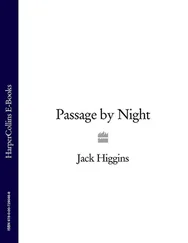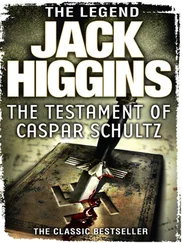The police car braked to a halt sharply. The Cretan kept on going, straight out of the end of the tunnel into Bishops Bridge Road.
Five minutes later he dumped the car in a side street in Bayswater, crossed the Bayswater Road and walked briskly through the trees across Kensington Gardens, emerging at Queen’s Gate.
There was quite a crowd when he crossed to the Albert Hall and a queue up the steps to the box office, for there was an important concert that night. The Vienna Philharmonic doing the St Anthony Chorale by Brahms with John Mikali playing Rachmaninov’s Concerto No. 2 in C minor.
21 July 1972. The Cretan lit a cigarette and examined the picture of Mikali on the poster, the famous one with the dark, curly hair, the pale face, the eyes like clear black glass.
He walked round to the rear of the building. One of the doors had an illuminated sign over it which said Artists. He entered. A doorkeeper, in his booth, glanced up from his sports paper and smiled.
‘Evening, sir, cold tonight.’
‘I’ve known worse,’ the Cretan said.
He descended to the corridor leading to the back of the stage. There was a door marked Green Room. He opened it and switched on the light. It was surprisingly spacious as dressing rooms went and reasonably furnished. The only thing which had visibly seen better days was the practice piano against the wall, an old upright Chappell which looked in imminent danger of collapse.
He took the Mauser from his pocket, opened a dressing case, removed the base panel and stuffed the Mauser inside out of sight. Then he took off his anorak, tossed it into the corner and sat down in front of the dressing mirror.
There was a knock on the door and the stage manager looked in. ‘You’ve got forty-five minutes, Mr Mikali. Can I get them to bring you some coffee?’
‘No, thank you,’ John Mikali said. ‘Coffee and I don’t agree. Some chemical thing, my doctor tells me. But if you could manage a pot of tea, I’d be most grateful.’
‘Certainly, sir.’ The stage manager, on his way out again, paused. ‘By the way, if you’re interested, there’s just been a newsflash on the radio. Someone’s shot Maxwell Cohen at his house near Regent’s Park. Hooded man. Got clean away.’
‘Good God,’ Mikali said.
‘The police think it’s political, Mr Cohen being such a well-known Zionist. He only escaped death by a miracle last year, from that letter bomb someone sent him.’ He shook his head. ‘It’s a funny kind of world we live in, Mr Mikali. What kind of man would do a thing like that?’
He went out and Mikali turned and looked in the mirror. He smiled slightly and his reflection smiled back.
‘Well?’ he said.
Some forty sea miles south from Athens and less than five from the coast of the Peloponnese, lies the island of Hydra, once one of the most formidable maritime powers in the Mediterranean.
From the middle of the eighteenth century many ships’ captains amassed huge fortunes trading as far as America, and Venetian architects were brought in to build large mansions which may still be seen to this day in that most beautiful of all ports.
Later, as Greece suffered under the harsh regime of the Ottoman Empire and the island became a haven for mainland refugees, it was the sailors of Hydra who challenged the might of the Turkish Navy in the War of Independence that finally brought national freedom.
To a Greek, the names of those great Hydriot sea captains, Votzis, Tombazis, Boudouris, have the same magic as John Paul Jones for an American, Raleigh and Drake to the English.
Amongst those names, none had a more honourable place than Mikali. The family had prospered as blockade runners when Nelson commanded in the Eastern Mediterranean, had provided four ships for the allied fleet which had crushed the might of the Turkish Empire once and for all at the Battle of Navarino in 1827.
The fortune that was the result of the piracy and the blockade running of the Turkish wars, shrewdly invested in a number of newly developed shipping lines, meant that by the end of the nineteenth century the Mikalis were one of the wealthiest families in Greece.
And the men were all seafarers by nature, except for Dimitri, born in 1892, who showed an unhealthy interest in books, attended Oxford and the Sorbonne and came home only to take up a post as Lecturer in Moral Philosophy at the University of Athens.
His son, George, soon restored the family honour. He opted to attend the School of Merchant Marine at Hydra, the oldest of its kind in Greece. A brilliant and gifted seaman, he held his first command at the age of twenty-two. In 1938, restless for fresh horizons, he moved to California to take command of a new passenger cargo ship for the Pacific Star line, working the San Francisco–Tokyo run.
Money meant nothing to him. His father had deposited one hundred thousand dollars to his account in a San Francisco bank, a considerable sum in those days. What he did, he did because he wanted to do it. He had his ship, the sea. Only one thing was lacking and he found that in Mary Fuller, the daughter of a high school music teacher, a widow named Agnes Fuller, whom he met at a dance in Oakland in July 1939.
His father came over for the wedding, bought the young couple a house by the sea in Pescadero and returned to a Europe where gunfire already rumbled like thunder on the horizon.
George Mikali was half-way to Japan when the Italians invaded Greece. By the time his ship had made the round trip and docked in San Francisco again, the German Army had taken a hand. By 1 May 1941, Hitler, by intervening to save Mussolini’s face, had overrun Yugoslavia and Greece and driven out the British Army, all in twenty-five days and for the loss of fewer than five thousand casualties.
For George Mikali there was no way home and from his father there was only silence, and then came that Sunday in December when Nagumo’s strike force left Pearl Harbor a smoking ruin.
By February, Mikali was in San Diego taking command of a transport and supply ship not much different from his own. Two weeks later his wife, after three years of ill-health and miscarriages, gave birth to a son.
Mikali could be spared for only three days. In that time he persuaded his mother-in-law, now a high school principal, to move into his home on a permanent basis, and tracked down the widow of a Greek seaman who had served under him and had lost his life in a typhoon off the Japanese coast.
She was aged forty, a solid, heavily built woman named Katina Pavlo, a Cretan by birth, who had been working as a maid in a waterfront hotel.
He took her home to meet his wife and his mother-in-law. In her black dress and headscarf she had seemed to them an alien figure, this short, stocky, peasant woman, yet Agnes Fuller had found herself strangely drawn to her.
As for Katina Pavlo, barren through eighteen years of marriage, her prayers and several thousand candles lit in desperate supplication to the Virgin unanswered, what was happening seemed like a miracle when she looked into the cot at the side of the bed and saw the sleeping child. She gently touched her finger to one tiny hand. He made a fist, held on as if he would never let go.
It was like a stone dissolving inside her, and Agnes Fuller saw it in the dark face and was content. Katina returned to the hotel for her few things, moved into the house that night.
George Mikali went to war, sailing to the islands again and again, one milk-run after another, until the early evening of 3 June 1945 en route to Okinawa when his ship was attacked and sunk with all hands by the Japanese submarine I-367 commanded by Lieutenant Taketomo.
Always in ailing health, his wife never recovered from the shock and died two months later.
Читать дальше

